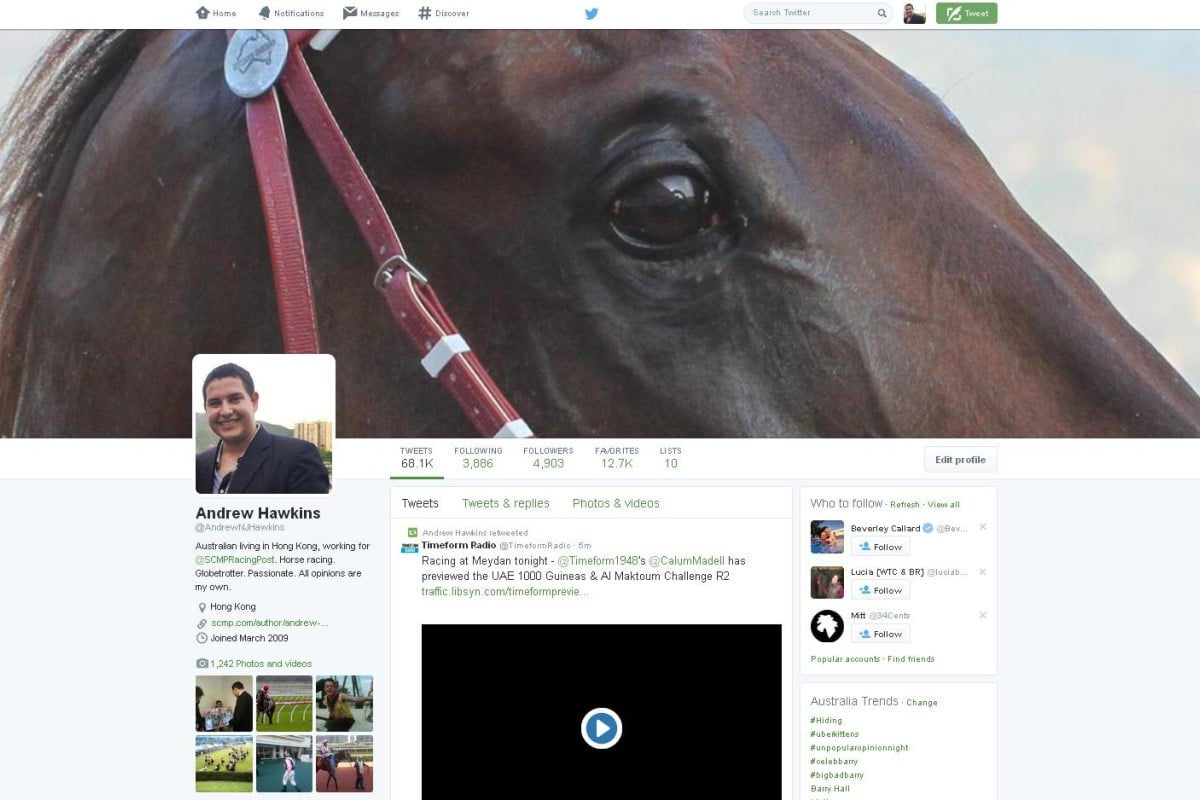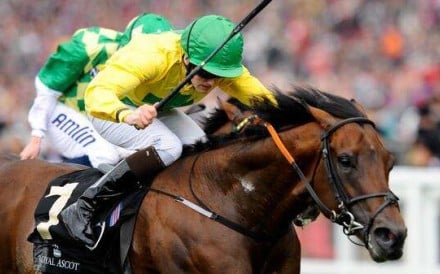I have a confession: I’ve just come back from confronting an addiction. A self-enforced rehab, of sorts.
In the immediate aftermath, it was like any withdrawal – nails on skin, hyperventilating, mood swings, babbling to myself – but this addiction had consumed my work and personal life. So, one day, I went the cold turkey route. I lasted 12 days.
My drug of choice? Twitter, the god of social media sites for the inquisitive and the opinionated.
Life was bland. I couldn’t keep going without knowing what someone I barely know was having for dinner in a different timezone. There were no pictures of their pets. I didn’t know their thoughts on whether President Obama was doing a good job or not.
Most notably, though, it allowed me to step back and gain an appreciation of Twitter’s role in horse racing in the modern world.

In a bygone era, punters would gather at a pub, watch the races from their little part of the world and pass on the water-cooler gossip that characterises the sport.
These days, the “pub” crowd extends to all corners of the world. One conversation recently featured two Americans, a Swede, a German and an Emirati – it sounds more like the opening line to a joke.
Twitter has made the world smaller in many ways, but the global racing community in particular seems to have found a spot on the platform – and not just for rumour and innuendo. It's a place of opinion, news, analysis and arguments.
It’s not unusual to see Americans talking about who they will back in the next at Sha Tin, or South Africans discussing this weekend’s clash between California Chrome and Shared Belief, or Australians pondering Thursday night’s Dubai card.
From a Hong Kong perspective, it was made clear with Able Friend’s arrogant win in the Stewards’ Cup.
Twitter, apparently, was abuzz, discussing whether he’d go to Australia, Dubai, England or Japan, debating his place on the world stage, excitably comparing his times.
I've seen some pretty good horses in my time but Able Friend really is something special #freak @HKJC_Racing
— Zac Purton (@zpurton) January 25, 2015
If you didn't see the Stewards' Cup demolition by Able Friend - standby for the replay shortly. WOW.
— Pat Cummings (@DubaiRaceNight) January 25, 2015
Able Friend popular with the ladies after latest victory... pic.twitter.com/WrREUsVUsz
— Calindy Conway (@dernhelm29) January 25, 2015
Is Able Friend a machine? HK Mile--1:33.49 Stewards' Cup--1:33.50 You tell me.
— Alan Carasso (@EquinealTDN) January 25, 2015
Outstanding performances by Able Friend and Hurricane Fly today at opposite ends of the globe, both exceptional equines.
— Oisin Murphy (@oisdacm) January 25, 2015
And people all over the world were jumping in and commenting, whether they were watching in a Colorado bedroom at 2am, in an office in Leeds at 9am or at a pub in Melbourne at 7pm.
Factors like commingling and the success of our horses overseas ensure that more people are tuned in to Hong Kong racing than ever, but Twitter has had a role in allowing discussion and increasing awareness of the local industry.
And what a time to be watching Hong Kong, as Able Friend potentially stamps himself as the best horse ever to be trained out of the multi-storey stables at Sha Tin.
Even John Moore, moments after the giant chestnut had returned to the winner’s circle, acknowledged that global interest had added some increased pressure and that it was a significant shift from when Silent Witness remained unbeaten at his first 17 starts a decade ago.

Back then, overseas racing fans could watch replays of Silent Witness on the Jockey Club website but the only chance to bet on him came in the 2003 and 2004 Hong Kong Sprints, when he was long odds-on.
While Hong Kong punters knew of the quality of Silent Witness, respect for the industry on the world stage has grown since and, as such, Able Friend carries more expectation than Silent Witness.
Now, even with no unbeaten streak to maintain, an Able Friend loss would send shockwaves through the world Twitter community, who have quickly embraced him as a figurehead, a banner horse who represents racing’s globalisation.
Come his next start, in the Queen’s Silver Jubilee Cup on March 15, the Twittersphere will be abuzz once more – only this time, I’ll be part of it again. Just one more time.
















